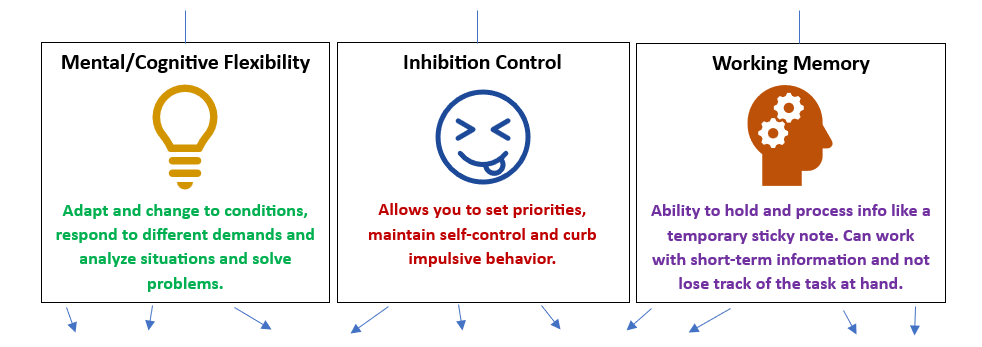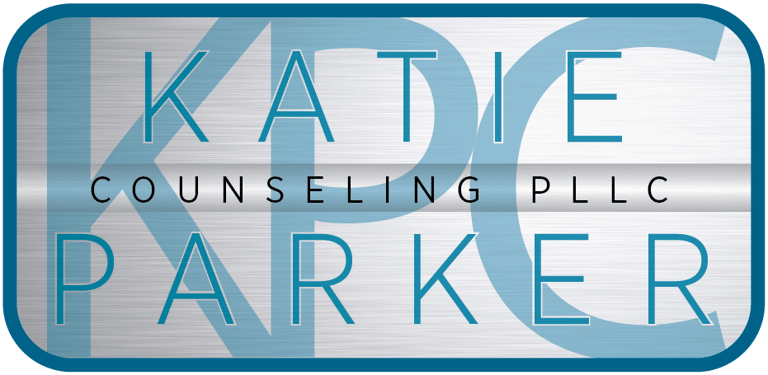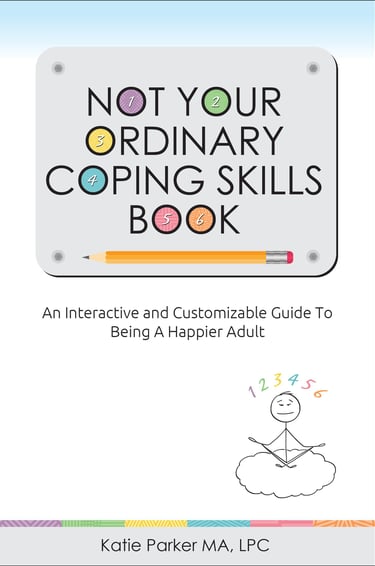Interesting Reads
Psychoeducation: Enhance your wellbeing, reduce symptoms like depression and anxiety & improve mental health through learning
Social Media
The following articles are written by or feature contributions by Katie Parker MA, LPC

Katie Parker on How to Recover From Being A People Pleaser
An Interview With Brooke Young & Yitzi Weiner
Published in Authority Magazine - 14 min read
The Psychological Impact of Clutter on Stress Levels
"Clutter's Dirty Little Secret"
Katie Parker MA, LPC published in the Associated Press library of content.


In this article that explores the impact of clutter on stress, the following excerpt was contributed by Katie Parker MA, LPC and has been added to the Associated Press library of content to target an audience seeking to improve their mental wellness and productivity through lifestyle adjustments.
Living in a cluttered environment can have a negative effect on emotional well-being. Ironically, stress can contribute to a cluttered environment. This vicious cycle can be extremely hard to break out of, and continue to exacerbate leading to an even greater detrimental effect on mental health. Studies have shown that the release of stress hormones such as cortisol and mental health symptoms such as anhedonia make it difficult to initiate change. Luckily, therapeutic treatment options such as psychotropic medications and evidenced-based practices such as Behavioral Activation, can help. Behavioral Activation is a process of setting realistic goals, establishing a structured routine, challenging negative thoughts, and seeking support. By applying these principles, decluttering becomes a manageable and empowering process. If you suspect that you may be experiencing anxiety or depression, it is important to seek help from a mental health professional who can correctly diagnose and create an effective treatment plan.
When Winter Weighs Heavy: The Reality of Seasonal Affective Disorder by Chantelle Kincy with contribution by Katie Parker MA, LPC
An estimated 10 million American adults each winter suffer from Seasonal Affective Disorder (SAD), a widespread yet often misunderstood condition.
Healing a Broken Mental Health System: Katie Parker On 5 Things That Can Be Done To Fix Our Broken Mental Health System
An Interview with Stephanie Greer
Published on Medium.com and in Authority Magazine - 18 min read
Emotional Control: The ability to control and manage emotions and behavior during completion of a task or goal.
Sustained Attention: The ability to complete tasks despite fatigue or boredom.
Task Initiation: Starting projects without procrastination.
Response Inhibition: Ability to think before you act and evaluate a situation before responding.
Planning & Prioritizing: Making decisions in order of importance and identify irrelevant information.
Organization: Creating a system to manage, sort, keep track, improve efficiency or effectiveness.
Time Management: The ability to allocate or estimate the time it will take to complete a task or meet a deadline.
Goal Directed Persistence: Following through to goal completion without becoming distracted by competing interests.
Flexibility: Overcome and adapt to obstacles, new information and changing situations.
Metacognition: Insight into your own thought processes through self-observation, self-monitoring, self-evaluation.


Three main components of Executive Functioning
Feeling overwhelmed is a common experience and often leaves us struggling to come up with effective positive coping skills in the heat of the moment. It's as if our ability to think clearly takes a break, leaving us stranded. Imagine having a coping skills book bursting with strategies perfectly tailored to you, neatly organized into categories and ready to go! It'll be like having a secret weapon against stress and challenges, right at your fingertips. It will completely transform your approach to handling stress and adversity.
Not Your Ordinary Coping Skills Book
Check back for updates about a new book coming soon!
Your Interactive and Customizable Guide to Being a Happier Adult
Katie Parker MA, LPC












